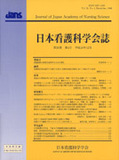Japanese
English
- 販売していません
- Abstract 文献概要
- 参考文献 Reference
- サイト内被引用 Cited by
要旨
喉頭摘出者のセルフヘルプ・グループ(SHG)参加で得ている支援内容とストレス対処パターンとの関連を検討することを目的とした.銀鈴会会員710名を対象とし,自記式質問紙を用いた郵送調査によって有効回答が得られた216名(回収率30.4%)を分析対象とした.SHGからの支援内容は【積極性の獲得】【具体的能力獲得】【情緒的支援】であった.食道発声が上達するにつれて支援内容の得点も上昇し,支援の感じ方は食道発声の獲得というSHGへの参加目的の到達状況に影響を受けていた.喉頭摘出者のストレスの対処として【対人情緒的対処】【問題解決対処】が確認された.【対人情緒的対処】【問題解決対処】をともに多く使用する者ほど支援を得ていると感じる程度も強かった.また【対人情緒的対処】を多く求める者は,食道発声が上達するにつれて【情緒的支援】への満足感が増していた.ストレス対処パターンが<情緒低・問題高>群は,代用音声獲得の期待が高いと考えられ,「初心」クラスでは支援を受けていると認識しにくかった.
Abstract
We carried our survey of relationship between factors of support from self-help groups (SHG) and ways of coping with stress in laryngectomees.A survey in the form of a mailed questionnaire was conducted on 710members of Ginrei-Kai. The self-completing survey form with effective responses was recovered from 216members (30.4%), who were enrolled in the analysis. They enjoyed the benefits of acquiring positive attitudes, acquiring specific skills, and receiving emotional support from SHGs. As their esophageal speech skills improved, the scores given for these factors of support increased. Their awareness of support was influenced by the status of accomplishment of the primary objective of joining SHGs, i.e., esophageal speech skills. The respondents overcame stress mainly by emotion-focused coping and problem-focused coping (Lazarus'stress inventory). Those laryngectomees showing a higher ability to cope with stress through emotion-focused coping or problem-focused coping were more aware of the support from SHGs. Laryngectomees showing a marked ability for emotion-focused coping were also more satisfied with emotional support as they accomplished an improvement in their esophageal speech skills. The group of responders indicating the stress coping pattern of “low scores of emotion-focused coping and high scores of problem-focused coping”was considered to expect satisfaction from the acquirement of an alternative means of verbal communication, whereas those in the “beginners”class were less aware of available support.
Copyright © 2006, Japan Academy of Nursing Science. All rights reserved.


